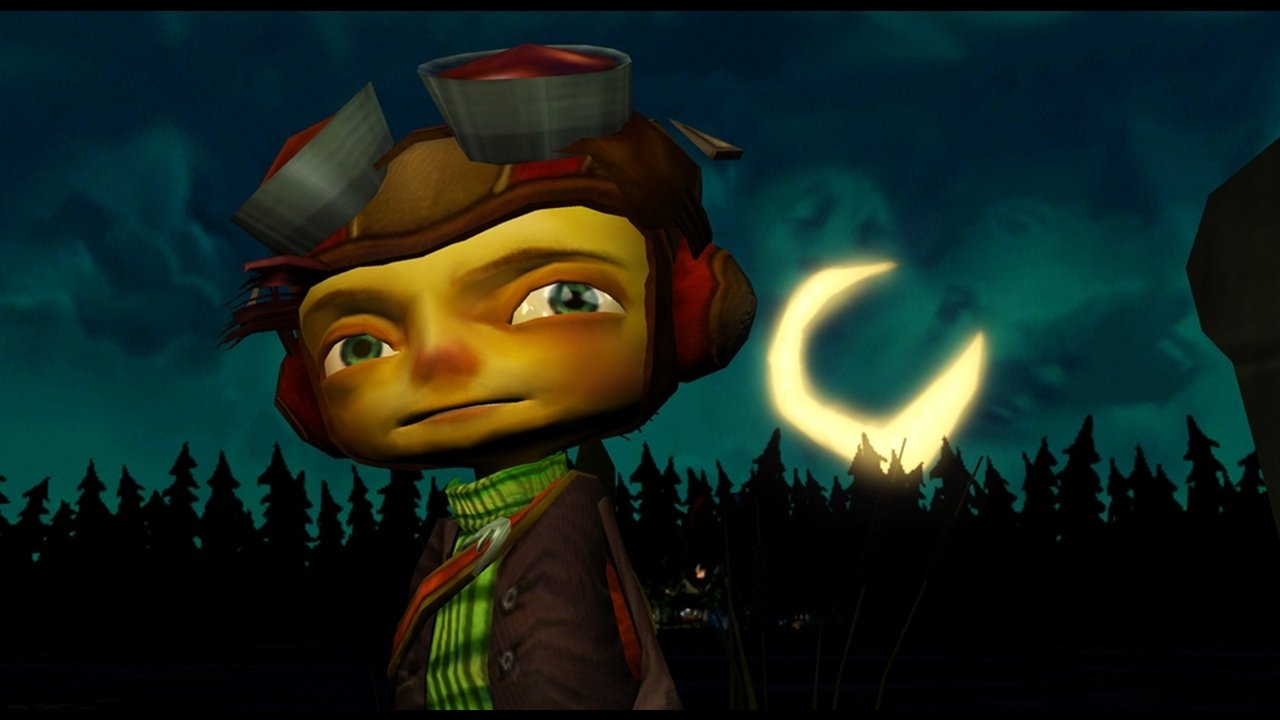How do you decide to buy a product? When a band you love puts out a new album you’re likely to go out and pick it up. When an author you love writes a new book you may head to the store the day it’s released for a copy.
The same type of creator loyalty applies to so many areas of the entertainment industry, but hasn’t seemed to carry over to game developers or design studios in a serious way.
That may be changing.
Last week Double Fine, the developer founded by adventure game maestro Tim Schafer responsible for titles like Brütal Legend, Trenched and Stacking, was in the news almost constantly. This was because they were offered private funding to create a sequel to one of their most beloved games (Psychonauts) by the creator of Minecraft and, a few days later, seeded the development of a traditional point-and-click adventure game in less than 12 hours via Kickstarter crowdsourcing.
All of a sudden, the languishing adventure genre was given new life and Double Fine had changed, in some measure, the way traditional videogame development funding is regarded. Though Kickstarter has already been around for some time and has helped make many, many interesting projects a reality, the sheer scale of Double Fine’s campaign — and the speed in which its funding goal was met and surpassed — is staggering.
The studio, without the assistance of any publisher, accomplished the ultimate rendition of a pre-order: Double Fine now know exactly how many people will purchase their product on the day of its release — who have actually received pledged money before even beginning work on the project — and are able to accurately gauge the viability of a game targeting what was assumed to be a niche market. All of this, needless to say, is a publisher’s wet dream.
Many spectators began tossing around the idea that crowdsourcing could change the way games are created, but this seems improbable. The Kickstarter/Double Fine model, while incredibly enticing for videogame developers, simply wouldn’t work for every studio. This is mainly because, unless a development team already has a devoted following, the general consumer isn’t likely to provide them with money on good faith alone.
Chris Avellone of Obsidian Entertainment (and formerly of Interplay Entertainment) may be one of the exceptions. Avellone’s writing credits include PC role-playing classics like Planescape: Torment and Fallout 2 alongside modern titles such as Fallout: New Vegas and (the fantastic but flawed) Alpha Protocol. His work is highly regarded to the point that savvy fans will keep an eye out for games with his writing credit stamped on it. Despite this, many people who enjoyed New Vegas more than Fallout 3 might have no clue of how to find more videogames in the same style, simply because Avellone’s name isn’t familiar enough to generate a popular, mainstream following.
What’s interesting, though, is how quickly Avellone and Obsidian took note of how Tim Schafer/Double Fine (an artist and studio of generally equivalent celebrity and fan following) achieved the funding of a game made “their way” via Kickstarter. Within a day of Double Fine’s success having been (widely) documented, Obsidan had tweeted and blogged a request for fans to let them know if they would be interested in crowd funding a new project from their team.
Will they succeed — and, if so, will more casual videogame fans now known who Obsidian and Avellone are?
All of this begs the question of whether the videogame industry may be maturing to the point wherein creators are recognizable enough to gain a popular following. This is exciting because, if buyers began to make purchasing decisions based on the merits of the studios/designers they already love instead of seeking an assurance of quality by buying sequels, we could enter into an era where masters of the form are rewarded and/or revered and sloppy developers fall to the wayside.
Rather than buy a new Call of Duty simply because it’s part of a well made franchise, players would benefit by recognizing the vast difference in quality and style represented by the series’ alternating developers. A better informed audience — an audience who knows an Infinity Ward from a Treyarch — would be able to use their dollars to vote for the studio, rather than the brand name, they actually like.
More than the resurrection of “dead” genres, more than developers being able to bypass the occasional creativity-stifling of publishers, Double Fine’s success with Kickstarter hints at a future where development studio loyalty leads to a medium filled with better games. That, to me, may be the real change — and one that we can all hope for.
***
Reid McCarter is a writer, editor and musician living and working in Toronto. He has written for sites and magazines including Kill Screen, The Escapist and C&G Magazine. He founded, writes and edits the videogame blog digitallovechild.com and is Twitter-ready @reidmccarter.




